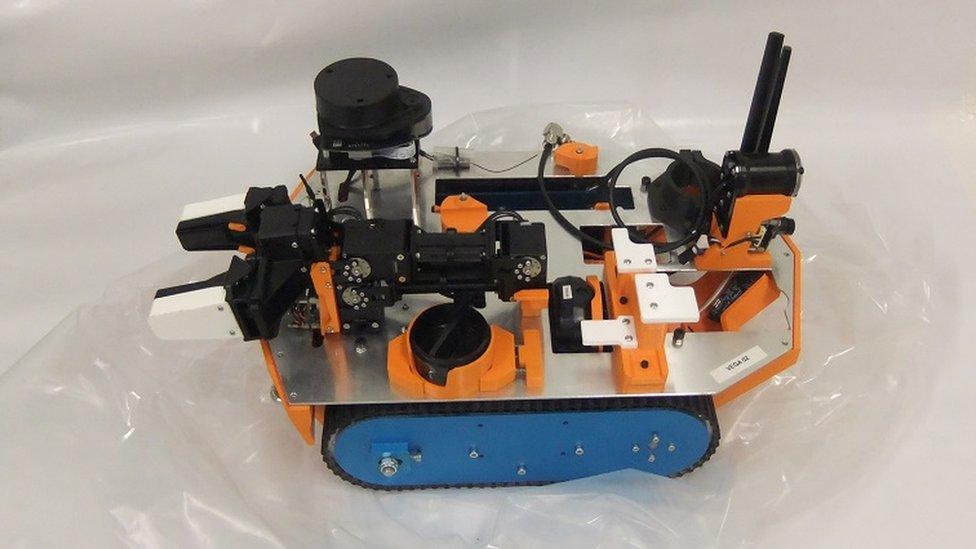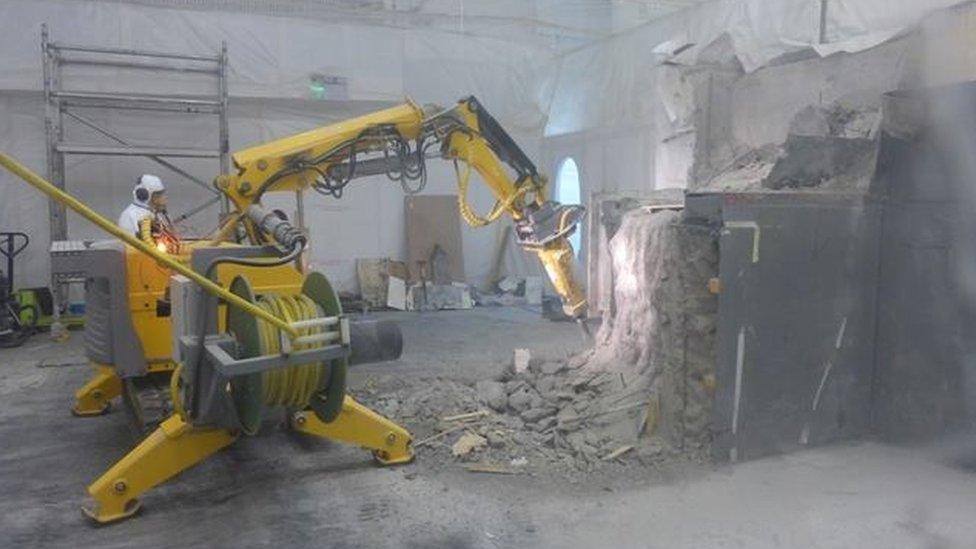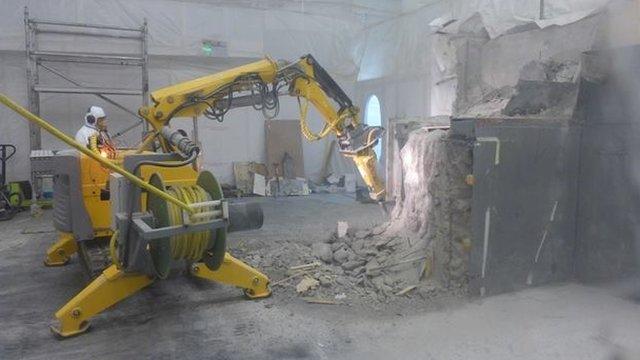Robot surveys radioactive duct at Dounreay power station in Caithness
- Published

The robot called Lyra surveyed a 140m duct
A robot has completed a survey of a radioactive ventilation duct below a disused laboratory at the Dounreay nuclear complex.
The power station's operator plans to use more robots in its work decommissioning the site on the Caithness coast near Thurso.
The machines are to be deployed into areas unsafe for humans.
The robot, called Lyra, surveyed the duct with a variety of tools, including radiation probes and cameras.
It also used Lidar, a detection system similar to radar but which uses lasers, and took swabs using a manipulator arm.
Dounreay was the UK site for the development of fast reactor research from 1955 to 1994.
The facility is in the process of being closed down, demolished and cleaned up.
Allow X content?
This article contains content provided by X. We ask for your permission before anything is loaded, as they may be using cookies and other technologies. You may want to read X’s cookie policy, external and privacy policy, external before accepting. To view this content choose ‘accept and continue’.

The power station's operator, Dounreay Site Restoration Ltd (DSRL), and the Robotics and Artificial Intelligence in Nuclear (Rain) Hub have been working together to develop a robot capable of accessing areas that are inaccessible or unsafe for people to work in.
The hub is a consortium of universities led by the University of Manchester.
The development of Lyra emerged from research work done in 2020.
DSRL project manager Jason Simpson said the robot's survey had helped create a comprehensive picture of the 140m (459ft) duct, and would guide decisions on how to decommission it
Rain Hub Director Barry Lennox added: "We wanted to demonstrate that the robot could be used successfully in active areas.
"We added fail-safe devices, including a remote reboot switch, and a winch to enable us to physically retrieve the robot if it got stuck on the debris in the duct.
"The survey has demonstrated Lyra's reliability in active areas."
Earlier this month, Cumbria-based technology specialists Createc gave a demonstration of a dog-like robot called Spot at Dounreay.

A robot demolishing parts of a building at Dounreay
Robots have previously been used at Dounreay.
In 2017, a robot demolished parts of a site associated with the first operational reactor to achieve criticality in Scotland.
The Dounreay Materials Test Reactor achieved criticality, a nuclear term referring to the balance of neutrons in the system, in 1958.
The robot, Brokk 180, was used to dismantle parts of the interior of the reactor's support buildings.
Related topics
- Published20 August 2020

- Published5 April 2017
